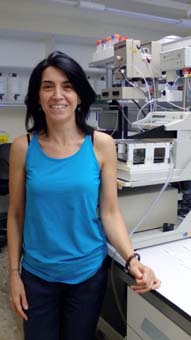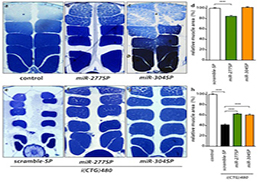Through the identification of a new function for the Dom34 protein, researchers at the Universitat de València and the Heinrich-Heine Universität of Düsseldorf (Germany) have discovered a possible target to carry out treatments against candidiasis, a frequent and worrying human pathology with an increasing incidence in inpatient infections.
25 de de novembre de 2016
Researchers of the Universitat de València and the Heinrich-Heine University of Düsseldorf (Germany) have discovered a possible target for treating candidiasis, through a new function for the Dom34 protein.Their study has shown that this protein, known for its role in the process of general recycling of ribosomes for the synthesis of proteins in the cell, is also necessary for synthesizing enzymes for the formation of glycoproteins on the cell wall of Candida albicans.In the research it has been proven that the Dom34 protein is able to recognize and bind to the mRNA product of the expression of the coding genes for protein glycosylation enzymes.With the binding of the protein and these mRNA, the translation as well as the synthesis of these enzymes are promoted. 
Published in the journal 'PLOS Genetics' , this discovery opens the possibility of exploringnew research and treatment lines to face candidiasis, given that, according toPaula Alepuz (responsible for the Spanish collaboration in the UV’s project): "Although most candidiasis infections are treatable, complications can become severe or fatal in certain populations; this is the case of immunodeficiencies, such as AIDS, or organ transplantation, where treatments may not work normally. At this time, there are no completely effective therapies”.
The Universitat de València has made its contribution through the quantitative study of the translation, that is, the process by which the genetic information transcribed in mRNA is used to synthesize the protein. The GFL research group (Yeast Functional Genomics), Department of Biochemistry and Molecular Biology of the Universitat de València, led by Paula Alepuz and José Enrique Pérez Ortín (Director of the Master's Degree in Biotechnology and Biomedicine R&D) have been working for years on the methodology to quantitatively determine the translation rates of mRNA at the genomic scale (of the entire cell) and at specific mRNA scales, as well as other omic methodologies that quantify other stages of the gene expression process.










